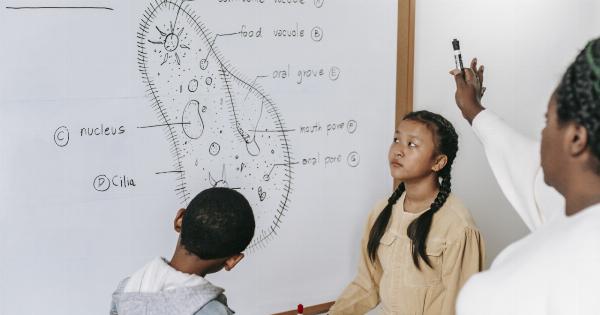Empathy is the ability to feel or understand the emotions and experiences of others. It is an essential characteristic that helps us connect with and support those around us.
Empathy has long been believed to be a personality trait, shaped by life experiences and personal values. However, a new study has found evidence that empathy may be linked to genetics.
What is Empathy?
Empathy is a complex psychological phenomenon that involves a wide range of cognitive and emotional processes. It is the ability to feel and understand the emotional experiences of others, to recognize their perspectives, and to respond appropriately.
Empathy allows individuals to comfort and support those in distress, to build strong social relationships, and to navigate challenging social situations.
Empathy is crucial for effective communication, collaboration, and cooperation in a wide range of settings, including personal relationships, work environments, and social groups.
Individuals who are highly empathetic are often described as compassionate, understanding, and supportive. They are also better able to identify and respond to the needs of others, which can strengthen their social ties and improve their overall well-being.
Empathy and Genetics
While empathy has long been considered a personality trait, shaped by life experiences and personal values, recent research has suggested that genetics may play a role in determining a person’s level of empathy.
The new study, published in the journal Translational Psychiatry, found that people with certain genetic variations were more likely to score higher on tests of empathy, compared to those without these variations.
The study involved a large sample of participants from the UK Biobank, a national health research resource that includes genetic information, health data, and other information from over 500,000 individuals.
The researchers looked at a specific set of genetic variations known as single nucleotide polymorphisms (SNPs), which are variations in a single nucleotide within a person’s DNA sequence. They focused on SNPs that were previously identified as being associated with traits related to social behavior, including empathy.
The researchers then administered a series of questionnaires and tests to assess the participants’ level of empathy, as well as other psychological traits.
They found that individuals with certain SNPs were more likely to score higher on tests of empathy, compared to those without these variations. Specifically, the researchers identified six SNPs that were associated with higher empathy scores.
However, it is important to note that the genetic variations identified in this study only accounted for a small portion of the variance in empathy scores.
Other factors, such as environmental and cultural influences, are likely to play a significant role in shaping a person’s empathic abilities.
What Does This Mean for Empathy?
The findings of this study suggest that genetics may play a role in determining a person’s level of empathy.
While the precise mechanisms behind this link are not yet clear, it is possible that certain genetic variations may influence the development and functioning of brain regions that are involved in empathy and social cognition.
However, it is important to emphasize that genetics is only one factor that contributes to empathy. Environmental and cultural factors, such as upbringing, social norms, and life experiences, are also important influences on the development of empathy.
Understanding the complex interplay of these factors is crucial for developing effective interventions and strategies to improve empathy and social behavior.
For example, programs that promote social and emotional learning in schools and workplaces have been shown to enhance empathy, communication skills, and overall well-being.
Conclusion
Empathy is a vital characteristic that plays a critical role in our social interactions and well-being.
While it has long been considered a personality trait shaped by life experiences, new research suggests that genetics may also play a role in determining a person’s level of empathy. However, it is important to note that genetics is only one factor that contributes to empathy, and that environmental and cultural factors also play a significant role.
Understanding the complex interplay of these factors is crucial for developing effective interventions and strategies to enhance empathy and social behavior.































